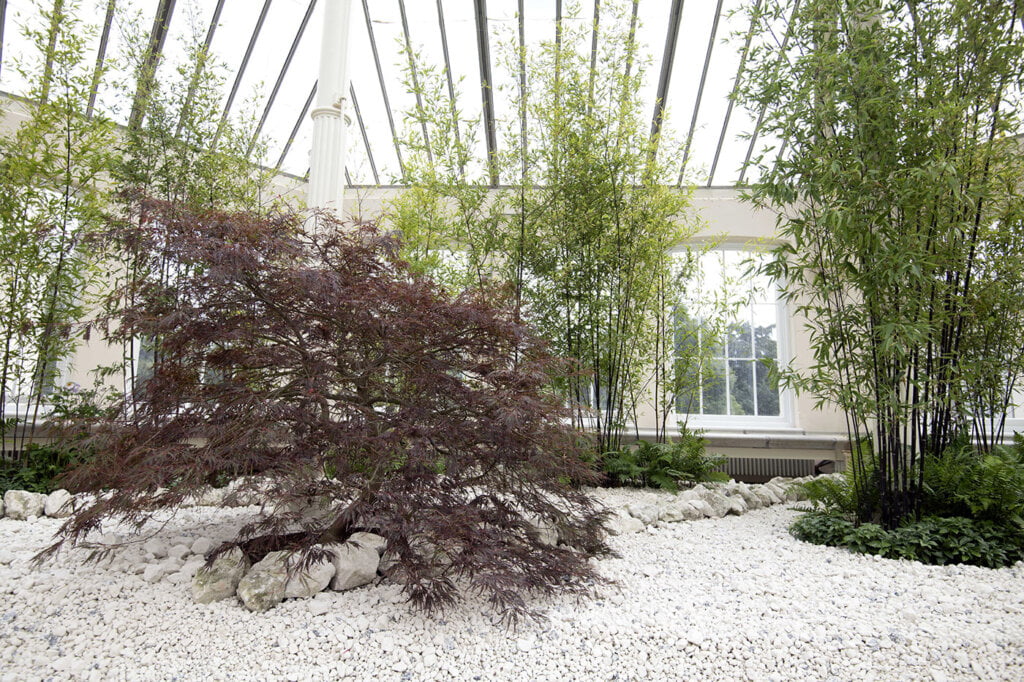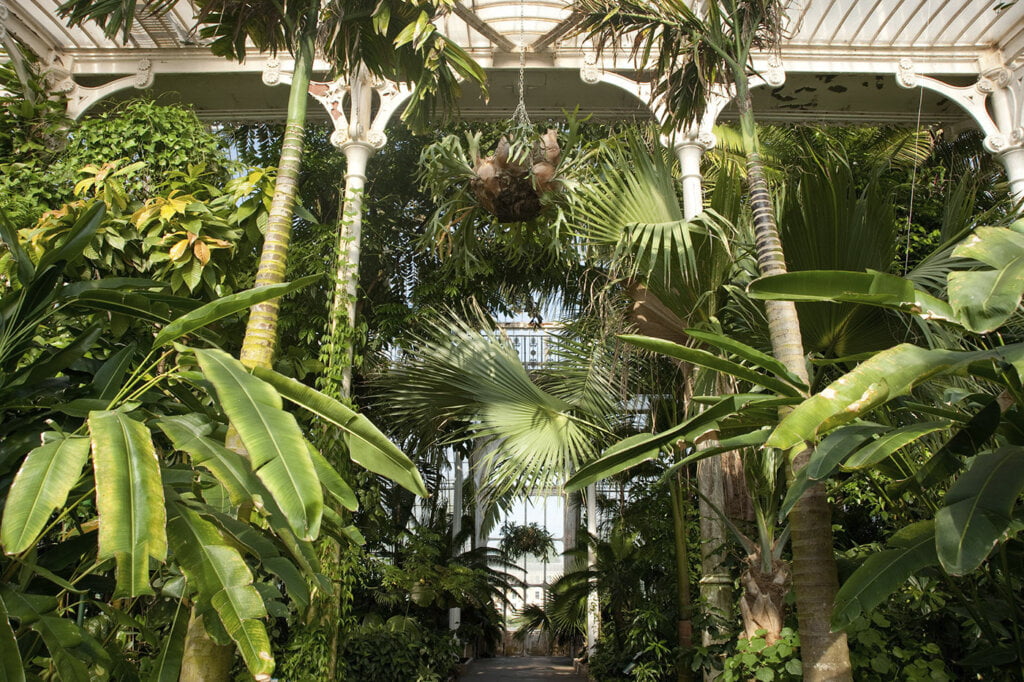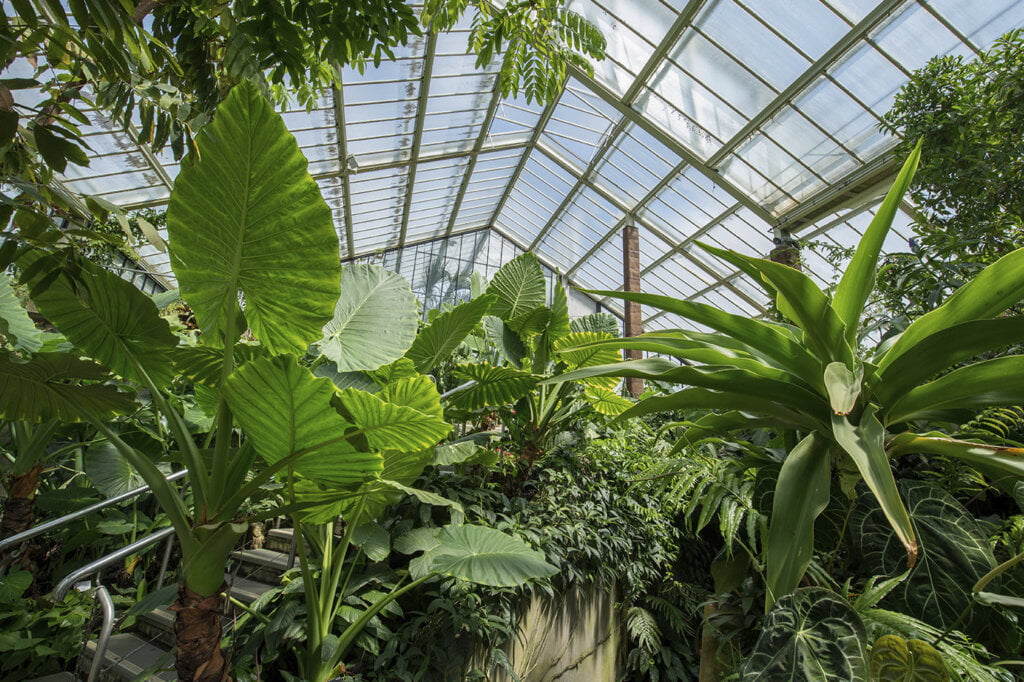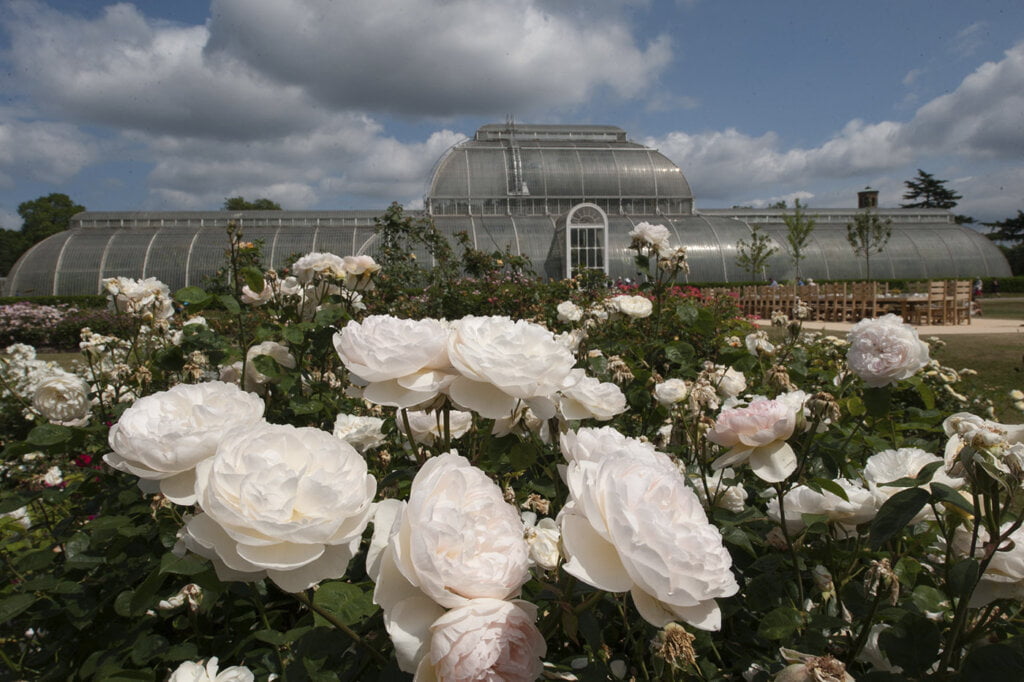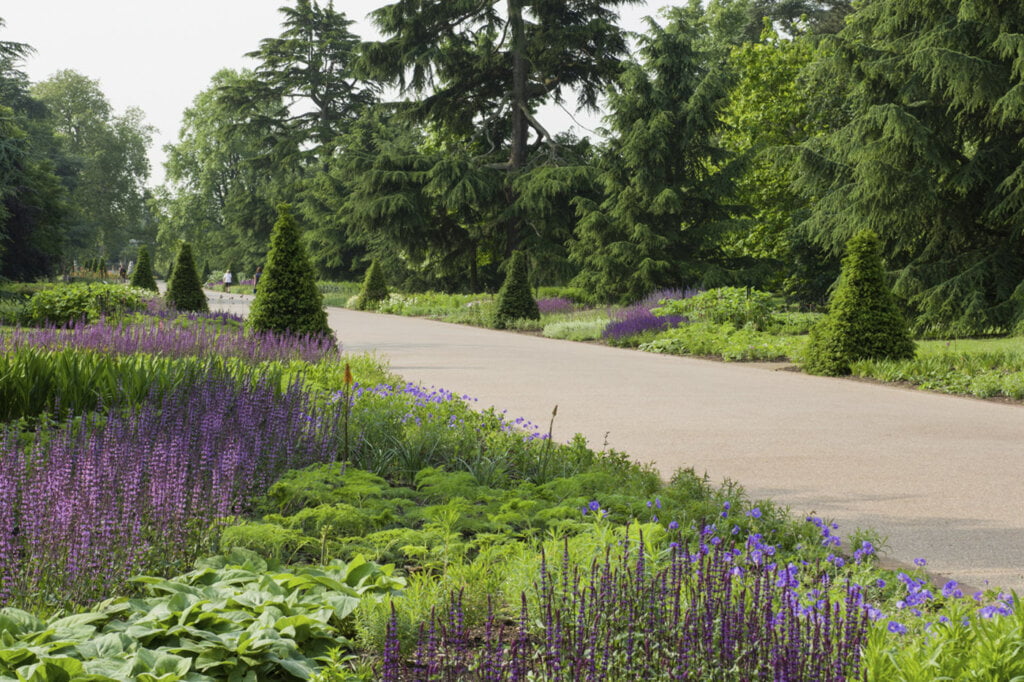The Japan Festival: A celebration of the country’s breath-taking plants, art and culture
This October the Royal Botanic Gardens, Kew invited visitors to immerse themselves in the art, plants and culture of Japan with a brand-new autumn festival.
The Japan festival, supported by Daikin UK, ran from Saturday 2 October to Sunday 31 October 2021 in Kew’s majestic Temperate House. The world’s largest surviving Victorian glasshouse, the Temperate House is home to over 10,000 plants from across five continents, a beacon of the future for plant science and biodiversity.

The Japan Festival at the Royal Botanic Gardens, Kew. © RBG Kew 
‘One Thousand Springs’
In a year when travel has been limited, RBG Kew was delighted to celebrate the fascinating culture of Japan with this festival. At its heart was a large-scale artistic installation by Japanese artist Chiharu Shiota, titled One Thousand Springs.
Renowned for her vast, room-spanning webs of thread installations, through which she explores human existence, Shiota’s One Thousand Springs was suspended from the roof of the Temperate House. Constructed of 5,000 haikus, submitted by members of the public and suspended within a sea of red threads, this breathtaking installation told stories of our shared connections with nature and formed a magnificent centrepiece to the festival.
Artist Chiharu Shiota said, “The Japanese language was formed by a culture that cherishes the natural world. Many cultural practices like ikebana, bonsai and hanami are based on the contemplation and enjoyment of nature.”
“For One Thousand Springs I chose to focus on the haiku. The traditional haiku mentions one of the seasons and many haikus are based on observations in nature. The ones featured in this installation were submitted by members of the public from around the world.”

Princess of Wales Conservatory. © RBG Kew 
Rose Garden. © RBG Kew
Horticultural installations
Stunning horticultural displays took over in the Temperate House Octagons with a specially commissioned Chalk Garden, a striking contemporary response to a Japanese garden showcasing native plants including grasses, shrubs and trees. This collaboration between Otis Landscape Associates and Kodai and associates presents contemporary Japanese garden design within a uniquely British landscape, inspired by Japan’s dramatic southern cliffs.
Set against the classical architecture of the Temperate House, Chalk Garden presented a unique juxtaposition of Japanese and British cultures, cultivating a sense of calm and reflection.
Kew has a strong connection to Japan through both our architectural features and our plants in the Gardens. The beauty and harmony of Japan is rich and fascinating, and the natural world as a whole is woven through Japanese culture in a unique and tangible way.
Paul Denton, Head of Visitor Programmes and Exhibitions at RBG Kew
Paul Denton, Head of Visitor Programmes and Exhibitions at RBG Kew says:
“Kew has a strong connection to Japan through both our architectural features and our plants in the Gardens. The beauty and harmony of Japan is rich and fascinating, and the natural world as a whole is woven through Japanese culture in a unique and tangible way. We were honoured to celebrate the country’s rich connection to nature through contemporary art, iconic plant displays, food and crafts this autumn.”

The Kitchen Garden. © RBG Kew 
The Great Broad Walk Borders. © RBG Kew
About the Royal Botanic Gardens, Kew
The Royal Botanic Gardens, Kew is a world-famous scientific organisation, internationally respected for its outstanding collections as well as its scientific expertise in plant diversity, conservation and sustainable development in the UK and around the world.
Kew Gardens is a major international and a top London visitor attraction. Kew Gardens’ 132 hectares of landscaped gardens, and Wakehurst, Kew’s Wild Botanic Garden, attract over 2.5 million visits every year. Kew Gardens was made a UNESCO World Heritage Site in July 2003 and celebrated its 260th anniversary in 2019.
Wakehurst is home to Kew’s Millennium Seed Bank, the largest wild plant seed bank in the world. RBG Kew receives approximately one third of its funding from the Government through the Department for the Environment, Food and Rural Affairs (Defra) and research councils. Further funding needed to support RBG Kew’s vital work comes from donors, membership and commercial activity including ticket sales.

